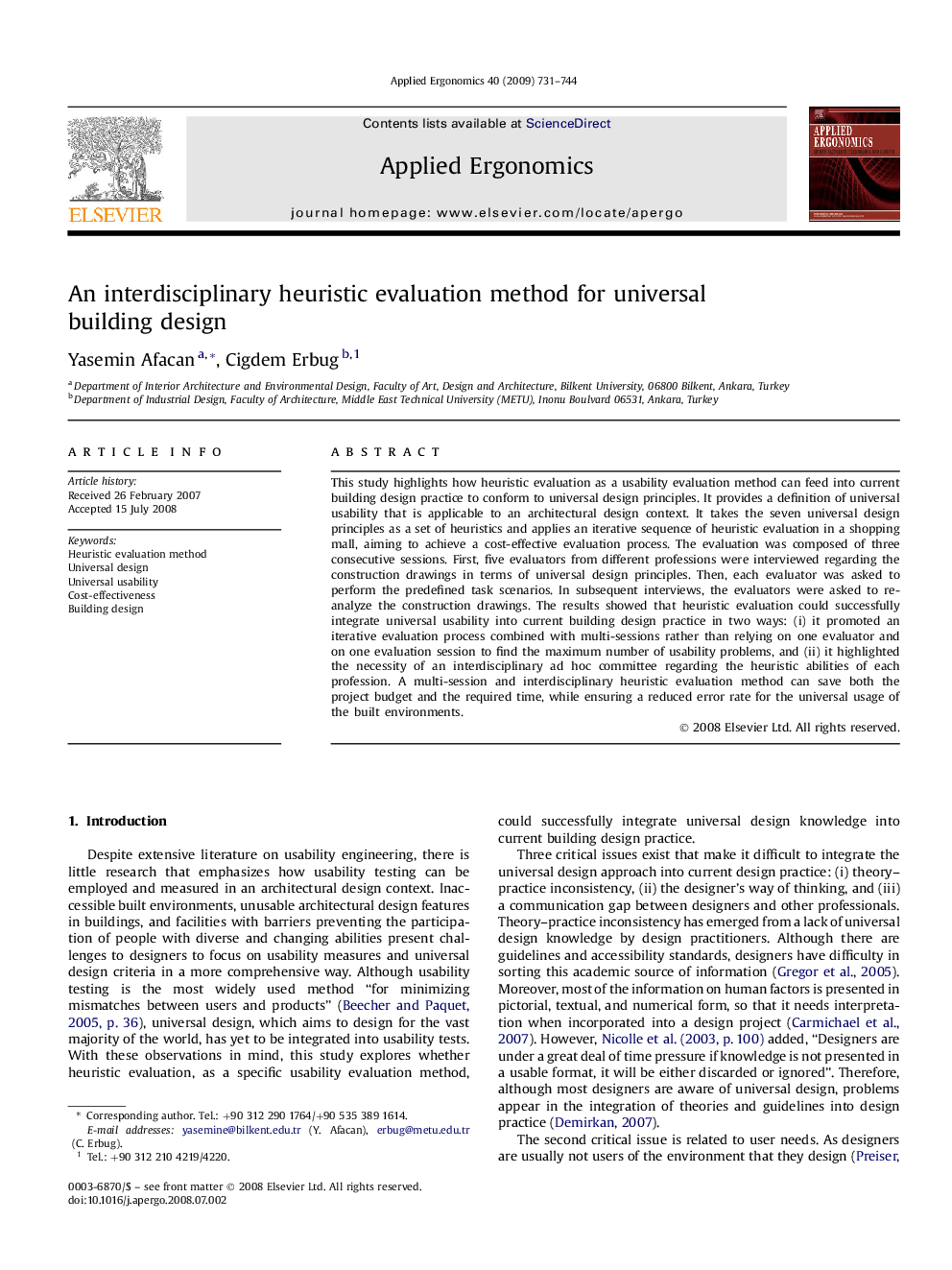| کد مقاله | کد نشریه | سال انتشار | مقاله انگلیسی | نسخه تمام متن |
|---|---|---|---|---|
| 551317 | 872826 | 2009 | 14 صفحه PDF | دانلود رایگان |

This study highlights how heuristic evaluation as a usability evaluation method can feed into current building design practice to conform to universal design principles. It provides a definition of universal usability that is applicable to an architectural design context. It takes the seven universal design principles as a set of heuristics and applies an iterative sequence of heuristic evaluation in a shopping mall, aiming to achieve a cost-effective evaluation process. The evaluation was composed of three consecutive sessions. First, five evaluators from different professions were interviewed regarding the construction drawings in terms of universal design principles. Then, each evaluator was asked to perform the predefined task scenarios. In subsequent interviews, the evaluators were asked to re-analyze the construction drawings. The results showed that heuristic evaluation could successfully integrate universal usability into current building design practice in two ways: (i) it promoted an iterative evaluation process combined with multi-sessions rather than relying on one evaluator and on one evaluation session to find the maximum number of usability problems, and (ii) it highlighted the necessity of an interdisciplinary ad hoc committee regarding the heuristic abilities of each profession. A multi-session and interdisciplinary heuristic evaluation method can save both the project budget and the required time, while ensuring a reduced error rate for the universal usage of the built environments.
Journal: Applied Ergonomics - Volume 40, Issue 4, July 2009, Pages 731–744